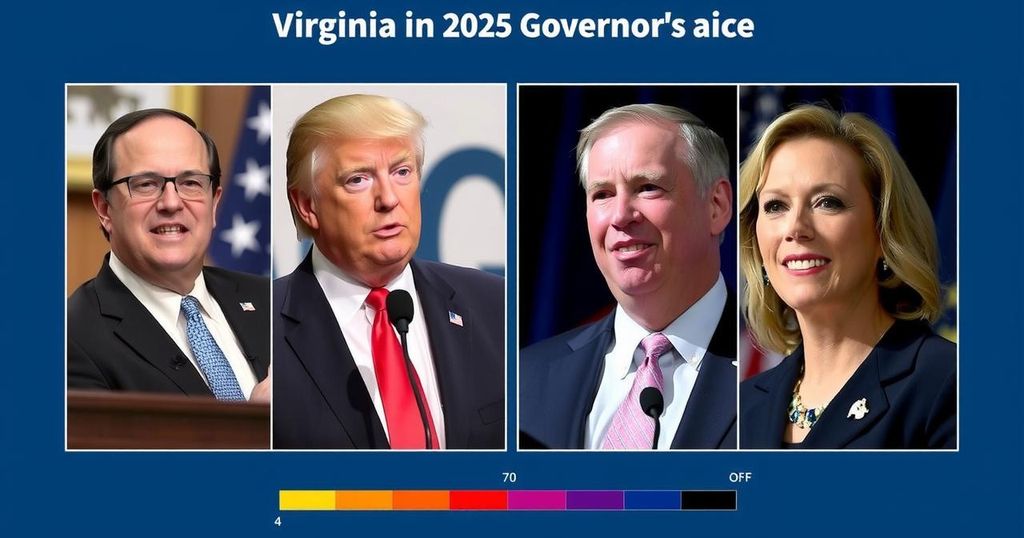Virginia’s Special Elections: A Critical Indicator of Party Strength Before 2025 Gubernatorial Race

Virginia’s special elections are testing party strength ahead of the 2025 gubernatorial race, highlighting key contests in the state legislature. The elections center around candidate contests in critical districts, particularly reflecting voter sentiment on issues such as abortion rights and funding priorities. The outcomes could reinforce Democratic control or signal a shift toward Republican momentum.
Virginia’s special elections serve as a crucial indicator of party strength ahead of the 2025 gubernatorial race. Recent contests in the state legislature will test the Democratic majorities against a background of increased Republican momentum at the federal level. The elections center around two key Senate and House Districts, with candidates vying for seats that were vacated by recent congressional appointments.
In the 32nd Senate District, Del. Kannan Srinivasan aims to hold the seat for Democrats against Republican candidate Tumay Harding. Meanwhile, in the 26th House District, Democrat J.J. Singh is running to fill the vacancy left by Srinivasan. Both races have attracted national attention and investment from the Democratic Legislative Campaign Committee, underscoring their significance for party control.
The Republican-leaning 10th Senate District features Democrat Jack Trammell competing against GOP nominee Luther Cifers. Cifers is favored to win in a district where over 60% of voters supported President Trump in the previous elections. Concurrently, Virginia lawmakers are contemplating the distribution of a $2 billion surplus, with competing priorities for K-12 education funding and tax relief.
Abortion rights have emerged as a pivotal topic during these elections, with Democratic candidates pledging to protect access, whilst their Republican counterparts remain ambiguous or oppositional. This divergence reflects broader national trends as states anticipate potential shifts in federal reproductive rights policy. The outcome of these elections may influence future discussions regarding a constitutional amendment to protect abortion rights in Virginia, contingent upon maintaining Democratic control in the legislature.
These special elections not only foreshadow the political landscape leading into 2025 but also may set the stage for contentious debates over vital social issues.
In a politically charged environment, Virginia’s special elections represent an essential assessment of party influence as they precede the significant gubernatorial election in 2025. The timing aligns with shifts at the congressional level, where Republicans anticipate gaining ground. Consequently, these contests will provide insight into voter sentiment and the potential for change within the state government, particularly regarding issues like abortion rights, education funding, and tax relief. The outcome will reveal whether recent trends toward Republican favorability have taken root or if Democrats can maintain or extend their legislative hold.
The special elections in Virginia are a critical test of party strength and public sentiment ahead of the upcoming gubernatorial race in 2025. The outcomes in various districts could reaffirm Democratic control or signal a shift toward Republican dominance, especially regarding pivotal issues such as abortion rights and education funding. With significant implications for the legislative agenda, the results will likely shape political discourse in Virginia and possibly influence national conversations as the state navigates its political challenges going forward.
Original Source: virginiamercury.com







